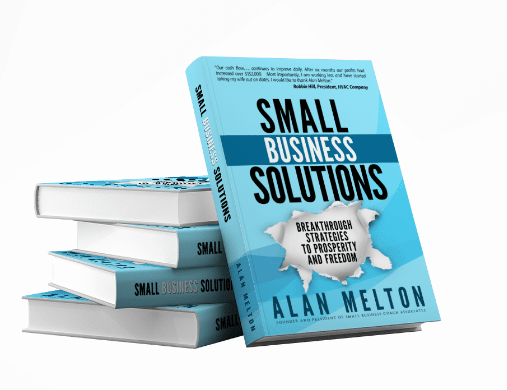VIEW BY TOPIC
- Finding Customers
- Business Systems
- Managing Employees
- Leadership
- Managing Money
Related Posts

Ready to Grow Your Business Fast?
Here’s How I Grew Five Businesses, and Eventually Sold One to a Fortune 500 Company.

How to Become Financially Stable Before Creating a Startup
Eliminating debt before creating a startup isn’t easy. In fact, some business owners may have a harder time achieving their goals without a decent safety net. In the end, becoming financially stable and achieving success requires that you build good habits and become disciplined.
9 Habits to Develop to be Financially Stable and Have Success
If you want to reduce your revolving debt or cut back on bad financial habits before starting a business, we’re here to help.
Here’s how to develop true financial stability and success.
1. Save Up for an Emergency Fund in a Separate Account
Open up an online bank account and start funneling money into it as soon as possible. Most business owners will keep 6 months worth of income in a savings account just in case things don’t work out. To make this process easy, set up an automatic transfer weekly or monthly.
2. Start Seeing the Value in Insurance and Building Credit
A good credit score can help you get approved for loans and other forms of lending, whereas insurance can protect your business from lawsuits and financial fallout. To benefit from both, you need to pay into them. However, it makes sense to invest in preventative business measures.
3. Control Your Impulse Spending as Quickly as Possible
The average American makes 12 impulsive purchases each month, which totals to $276 a month in wasted money. Unless you want to spend $3,312 a year on things you don’t need, start monitoring your spending with a bank app. That way, you’ll keep tabs on what goes in and out.
4. Create a Budget, Evaluate Expenses, and Live Frugally
Living frugally isn’t easy in 2022, but there are still a few ways you can reduce what you spend. Take a look at your monthly expenses and cut out what you don’t need. If you want to challenge yourself, consider trying a One Month Saving Challenge, like the “No Spend.”
5. Invest into Retirement Savings Accounts in Your 20s

Young business owners may not think about retirement much, but you shouldn’t wait to invest. If you start in your 20s, you could save thousands of dollars more than you otherwise would have if you began in your 30s. Plus, you’ll reduce your taxes if you pay into a 401(k) or Roth IRA.
6. Focus on Keeping You and Your Family Secured First
Money management is all about setting your priorities. Always commit to paying yourself first, whether that means you’re building up a rainy day fund or setting money aside for your son’s soccer camp. Consider purchasing life insurance if you have a spouse or dependents.
7. Eliminate and Avoid Debt (Specifically Bad Debt)
Some debt is considered acceptable, like mortgages and business loans. However, if you’re using your credit cards recklessly and incurring debt because of it, stop doing so. Focus on paying down your debts, even if it takes several years because being debt-free is rewarding.
8. Pay Your Bills Immediately or Set Up Automatic Payments
It’s essential to pay your bills on time. Not only does this habit help reduce your debt, but it can eliminate your late fees. If you forget to pay your bills, set up automatic payments. But, if you aren’t paying your bills because they’re too expensive, consider switching service providers.
9. Learn More About Personal and Business Finances
Since you’re reading this article, you’ve already completed this step. Still, it doesn’t hurt to learn more about finances. The more you educate yourself, the more financially stable you will be. Plus, if you bill these important habits now, you’ll have a higher chance of succeeding in your business.














